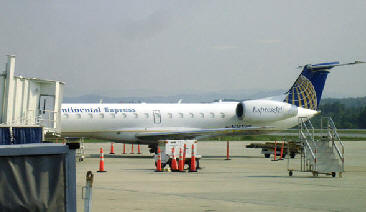
NEWSROOM
 |
NEWSROOM |
|
|
|
|
|||
|
By Mike Mitchell |
||||
 |
December 22, 2009 - “Airline passengers have rights, and these new rules
will require airlines to live up to their obligation to treat their
customers fairly,” said. U.S. Transportation Secretary Ray LaHood who
announced a new rule that significantly strengthens protections afforded
to consumers by, among other things, establishing a hard time limit
after which U.S. airlines must allow passengers to deplane from domestic
flights. The new rule prohibits U.S. airlines operating domestic flights from permitting an aircraft to remain on the tarmac for more than three hours without deplaning passengers. With exceptions allowed only for safety or security or if air traffic control advises the pilot in command that returning to the terminal would disrupt airport operations. |
|||
|
This rule was adopted in response to a series of incidents in which
passengers were stranded on the ground aboard aircraft for lengthy
periods and also in response to the high incidence of flight delays and
other consumer problems. In one
of the most recent tarmac delay incidents, the Department fined
Continental Airlines, ExpressJet Airlines and Mesaba Airlines a total of
$175,000 for their roles in a nearly six-hour ground delay at
The rule also:
• Prohibits airlines from scheduling chronically delayed flights,
subjecting those who do to DOT enforcement action for unfair and
deceptive practices;
• Requires airlines to designate an airline employee to monitor the
effects of flight delays and cancellations, respond in a timely and
substantive fashion to consumer complaints and provide information to
consumers on where to file complaints;
• Requires airlines to display on their website flight delay information
for each domestic flight they operate;
• Requires airlines to adopt customer service plans and audit their own
compliance with their plans; and
• Prohibits airlines from retroactively applying material changes to
their contracts of carriage that could have a negative impact on
consumers who already have purchased tickets.
|
||||
|
Today’s final rule was adopted following a review of public comments on
a proposal issued in November 2008.
The Department also plans to begin another rulemaking designed to
further strengthen protections for air travelers.
Among the areas under consideration are: a requirement that
airlines submit to the Department for review and approval their
contingency plans for lengthy tarmac delays; reporting of additional
tarmac delay data; disclosure of baggage fees; and strengthening
requirements that airline ads disclose the full fare consumers must pay
for tickets.
On November 15, 2007, the Department of Transportation (DOT or
Department) issued an Advance Notice of Proposed Rulemaking (ANPRM) in
Docket DOT-OST-2007-22 entitled “Enhancing Airline Passenger
Protections.” This ANPRM was published in the Federal Register five days
later. See “Department of Transportation, Office of the Secretary, 14
CFR Parts 234, 253, 259, and 399 [Docket No. DOT-OST-2007-0022], RIN No.
2105-AD72, 72 FR 65233 et seq. (November 20, 2007).
|
| ©AvStop Online Magazine Contact Us Return To News |
|